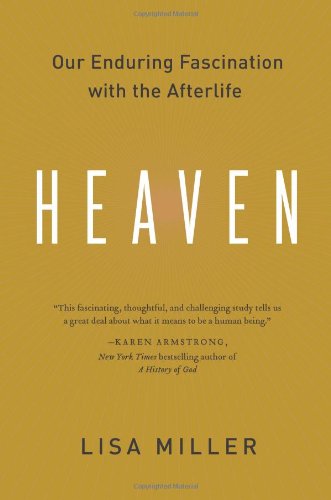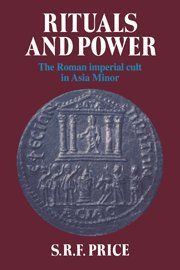Genesis 15:15, Gathered to My People, I of II
And thou shalt go to thy fathers in peace; thou shalt be buried in a good old age.
//That’s God’s promise to Abraham, regarding his ultimate end. God promised a long, good life, after which he would “go to his fathers.” And that’s what happened ten chapters later:
Genesis 25:8, Then Abraham gave up the ghost, and died in a good old age, an old man, and full of years; and was gathered to his people.
Often the statement is made that the Old Testament authors did not believe in a resurrection. This appears to be true; there’s little hint about any idea of resurrection (bodily or otherwise) until the book of Daniel, penned in the Maccabean period, about 165 BC. Nor did Old Testament authors dream of living in heaven with God. Heaven was reserved for heavenly beings; not people. Abraham’s reward for obedience, like Job’s, was on earth, while he still lived, after which he went “to his people” … wherever that is.
But Abraham’s “people” would soon develop higher expectations than earthly reward. The mistreatment of Jews in the Maccabean period spurred the rise of a belief in reward after death. If bad things happened to good people on earth, with no hint of justice, then reward must apparently come later, right? This sort of thinking is natural: In 1997 a Gallop poll in America reported that 72% of Americans believe in heaven. That’s 1997, when unemployment hit a 28-year low and the Dow reached 7,000. Who needed heaven? Ten years later, the poll was repeated. After 9-11 and a serious recession, belief in heaven had risen nine points to 81%. Thankfully, we imagine, a better life awaits.
Comin’ for to carry me hommmmme. More on this topic on a couple days, when we’ll learn about Abraham’s “people” that preceded him in death.
Got an opinion? 1 commentBook review: Devil’s Ink
by Jeffrey C. Pugh
★★★★★
Is the Devil omniscient or merely opinionated? I don’t know. He certainly has lots to say, as he rants for page after page in his “blog from the basement office.”
At first, I felt like I just wasn’t getting it. I shook my head over the first dozen pages, thankful this lurking evil was all a myth. Then, I considered the many who do take the Devil seriously, imagining him as a sort of personified version of everything wrong with the world, and to them, this book must be absolutely frightful! How does one dare make light of the Evil One himself? The book is edgy to begin with, but as I imagined the dichotomy between believers and non-believers, it became doubly so.
When I came to realize Pugh was just building a little atmosphere, I started to relax. A feisty critter, that Devil. Arrogant, insulting, mischievous, sleazy, often crabby. I stuck my tongue out at the cranky old coot whenever he came unhinged. He does like to rant:
“If someone screws with me, they should pay. I really don’t want them forgiven. That’s just how I roll. Who is “god” to forgive someone who wrongs me, anyway? It’s sheer arrogance, it is.”
But my comfort faded when the book took another turn, and began to get serious. A new, not-so-simple image of God began to surface, one you “can’t put on a stained-glass window like you can a bearded guy on a throne.” Political, intelligent, and relevant, Pugh soon gave me much to think about, if I could keep from burning out by constantly looking at the world through the lens of the gleefully evil.
Suggestion: The blog-sized sections make for a perfect bathroom reader.

Nehemiah 2:19, the Bible’s only named Arab
But when Sanballat the Horonite, and Tobiah the servant, the Ammonite, and Geshem the Arabian, heard it, they laughed us to scorn.
//Today’s verse is the only named Arab in the Bible. Will you let me evoke my right as a book reviewer to quote from David Plotz’s Good Book again?
“When Geshem the Arab and his cronies hear that Nehemiah is rebuilding the wall, they ‘mocked and ridiculed’ him. Nehemiah responds by saying: ‘the God of heaven is the one who will give us success, and we His servants are going to start building; but you have no share or claim or historic right in Jerusalem.’ In what can be seen as a darkly humorous divine joke, the only Arab in the Bible turns out to be (1) an enemy of the Jews and (2) at odds with them over who should control Jerusalem. It’s 2,500 years later: Has anything changed?”
I’ve told you thrice, now: Go get David’s insightful book. Here it is again: http://www.dubiousdisciple.com/2011/06/book-review-good-book.html
Got an opinion? 0 commentsBook review: Nero
by Jurgen Malitz
★★★★★
I’m tempted to simply quote the opening chapter of my book about Revelation. Most of that first chapter comes directly from this book. I begin with a series of short glimpses into the life of Nero Caesar in an attempt to portray the demons within the man named by Revelation as the Beast of the Sea.
Nero was the fifth Roman emperor, and thus the fifth “king” of seven in the book of Revelation. He’s one of the most fascinating emperors of the era, sharing the title (in my opinion) with Augustus and Caligula. He’s known as a narcissistic tyrant, and the man who single-handedly ended the reign of the Caesars (the original family line) by putting every possible heir to death. He’s also known, of course, for his brutal and imaginative persecution of Christians. But Malitz also gives credit where credit is due, outlining Nero’s more positive contributions from earlier in his reign.
A short chapter near the end of the book discusses Nero’s “afterlife,” the enduring legend which sprang up in his name as the antichrist, 666. It was believed by many (including, apparently, John of Patmos) that Nero would come back to life to regain his throne by force. Nero is the ruler who dies and lives again as the eighth king of Revelation.
Mesmerizing and fun, if you have any interest at all in this stuff, you won’t be able to put the book down. Admittedly, many of the more sensational Nero stories are of questionable authenticity (such as blaming him for setting the fire that destroyed Rome near the end of his reign) and separating fact from fiction can be a challenge, but for me, writing from a Christian viewpoint, both sides are equally important.
This is a relatively short book, ending officially after 113 pages, but immediately following this is a translation of Suetonius’ The Lives of the Twelve Caesars.

Revelation 2:13, The Throne of Satan
I know where you live–where Satan has his throne. Yet you remain true to my name. You did not renounce your faith in me, even in the days of Antipas, my faithful witness, who was put to death in your city–where Satan lives.
//Ever wonder where Satan lives? Here it is, in black and white, in a message to the church of Pergamum, one of the seven cities of Asia Minor. As Rome had apparently become the center of Satan’s activity in the West, Pergamum had become the “throne” of the East.
Pergamum, according to John of Patmos, was far from perfect. They had some among them who “held to the teaching of Balaam,” an Old Testament character known for corrupting Israel by promoting idol worship. Pergamum also had some who “held to the teaching of the Nicolaitans,” known for their deviant sexual practices and, again, for idolatry. But of the greatest idolatry of all, worshipping the throne of Satan, Pergamum’s record remains unblemished.
What exactly was this throne of Satan in Revelation? Some have wondered if it referred to the great throne-like altar in Pergamum to Zeus, a massive structure originally built in the second century B.C. Given that Zeus is the father of Apollo, that Nero Caesar often portrayed himself in the divine image of Apollo, and that Nero Caesar is, by nearly every historical-critical account of Revelation, the original Beast of the Sea, it all comes together, once more displaying John’s fondness for parody. As Jesus, the Lamb, is named the Son of God, Nero, the Beast, is named the son of Satan.
Book review: God’s Trombones
by James Weldon Johnson
★★★★★
Excellent! This is a Penguin Classic, reprinted in 2008 from the original in 1927. It presents seven inspiring Negro sermons in verse.
A thought-provoking statement comes from the Forward: “African Americans are the only people in the whole world and history who really practice Christianity.” No one else has ever found in their hearts the gift of forgiveness, the Forward claims. African Americans forgave the slave owners who worked them without payment for 240 years. This ability to forgive made many former slave owners uneasy, so incomprehensible was their forgiveness.
These transplanted Africans accepted Jesus as their savior and laid all their worries on him. God’s trombones—the old time Negro preachers—were powerful, eloquent figures in their community. A community surviving on hope. When the lyricists wrote, “Swing Low, Sweet Chariot, coming for to carry me home,” neither the singer nor the audience had to tax their imagination to consider death a sweet chariot or to doubt that heaven was their destination. When the folk-sermon was in full swing, a rhythmic dance to the beat of powerful voice, an electric current passed through the congregation.
You don’t want to miss these seven poetic sermons.

2 Samuel 14:25, Absalom’s Hair
In all Israel there was not a man so highly praised for his handsome appearance as Absalom. From the top of his head to the sole of his foot there was no blemish in him.
//What a specimen, that Absalom! So gorgeous was he that he sometimes had to cut his hair, because it grew so long and heavy. The locks of hair from each cutting weighed two hundred shekels (about five pounds).
Such a man deserves to be king, or so Absalom imagined. Rebellious, he turned against his father David, God’s anointed king. And that’s where divine justice caught up with him.
Fleeing the men of David on a mule, his dazzling hair caught on the branch of a tree, and the mule kept going without him. Dangling alive from the tree branch, David’s men caught up with him and killed him.
Surely, it’s from this story that we derive the common saying: “Hair today, gone tomorrow.”
Book review: Heaven: Our Enduring Fascination with the Afterlife
by Lisa Miller
★★★★★
I’ve found my soul sister! Meet Lisa Miller, a self-described journalist, religion expert, and professional skeptic. She sometimes wants to believe, but it isn’t in her. She misses her grandparents, and wishes she could picture them contentedly up there in heaven waiting for her, but she just can’t. Her journey in this book to learn about heaven may have been spurred by a certain emptiness.
In search of heaven, Lisa interviews dozens of people, from rock musicians to homemakers to heavy-hitting theologians. From Muslims to Jews (her heritage) to Christians and beyond. She finds that, for most people, heaven is the best of what they already enjoy on earth—only a little better. And forever.
Lisa likes statistics, and the statistics show religious views are changing. Today, 65 percent of Americans believe that many different religious paths can lead to eternal salvation. Only a third of Americans still believe in a God who controls human events. Yet, 81 percent of Americans tell pollsters that they believe in heaven, up from 72 percent ten years earlier. How can this be? “It’s hard to know exactly what they mean—beyond an automatic and understandable hope for something after death besides the terrifying end of everything.” Belief in reincarnation, for example, is trending upward, fueled in part because people today WANT to come back and live again. Life is better in our age. Where before, we wanted to escape the cycle, now we want another run at it.
A fun and thought-provoking book, I’d recommend this one for anyone.

Revelation 5:7, The Scroll with Seven Seals
[Jesus] came and took the scroll from the right hand of him who sat on the throne.
//In Revelation, Jesus is the only person found worthy to open a mysterious scroll. Sealed seven times over, it obviously hides a great secret. In heaven, Jesus removes the seals one-by-one, initiating a sort of countdown; after each seal, our attention is drawn to the earth, where battles and famines and natural disasters occur.
Have you ever wondered where this scroll came from? Let’s see if we can uncover its roots and learn what it says.
My best guess is that Revelation’s scroll comes from the book of Daniel. A fiery angel from heaven interpreted Daniel’s visions of horned beasts and great kings to foretell how the world would end, but God told Daniel to seal up his story until the end of days.
After its seals are removed one-by-one, we seem to lose track of the scroll, but it surfaces again in chapter 10 of Revelation. There, a mighty angel stands holding a little scroll, now open. He plants his fight foot on the sea and his left foot on the land. Daniel’s mighty angel actually stands towering over a river; Revelation has perhaps tweaked this image to mimic the Caesars, who were sometimes portrayed standing over land and sea, bringing prosperity to the land and peace to the seas.
Now in Revelation, the angel swears there will be no more delay, and his speech rumbles like the seven thunders of heaven. But John is told not to write down in Revelation what the angel says; he is ordered to take the scroll and swallow it. And that’s the last we hear of it.
Oh, so close! Daniel’s end-of-the-world scenario remains a mystery still.
Book review: Rituals and Power: The Roman Imperial Cult in Asia Minor
by S. R. F. Price
★★★
By beginning the book with a survey of the development of Hellenistic religion and Temple worship, Price eases into the topic of how Roman emperors grew to be worshipped in the same manner. Drawing on literary sources and archaeology, and comparing the rituals of Imperial temples to those of Greek gods, he concludes that the worship of Roman emperors was far from some sham religion meant to honor Asia Minor’s controlling rulers. The emperors of Rome were honestly worshipped as divine.
Price discusses temple construction, the cultural context, and the rituals that were performed. Caesar worship became hopelessly intertwined with public religion, commerce, government, entertainment, and ceremony.
Why is this topic interesting to me? Because the rise of the Imperial Cult mirrored the rise of Christianity, and in Asia minor especially, it must be considered a primary competitor to Christianity. The Book of Revelation provides the most clear Christian response to the Imperial Cult in Asia Minor, severely opposing its abominable worship. While very little is mentioned in Price’s book about Christianity, the Christian scholar will, of course, read the book with the topic of Christian opposition and particularly John’s Apocalypse in the back of his mind.
I’m unaware of any more exhaustive research on this topic, and for that reason, it’s an important book. I did, however, find the writing too dry for easy reading. You will learn, but you will dig hard to do so.

















 354 Circles
354 Circles
 603 Goodreads Friends & Fans
603 Goodreads Friends & Fans

 Hello! I'm an author, historical Jesus scholar, book reviewer, and liberal Christian, which means I appreciate and attempt to exercise the humanitarian teachings of Jesus without getting hung up on any particular supernatural or religious beliefs.
The Bible is a magnificent book that has inspired and spiritually fed generations for thousands of years, and each new century seems to bring a deeper understanding of life’s purpose. This is true of not only Christianity; through the years, our age-old religions are slowly transforming from superstitious rituals into humanitarian philosophies. In short, we are growing up, and I am thrilled to be riding the wave.
I avidly read all thought-provoking religion titles. New authors: I'd love to read and review your book!
Hello! I'm an author, historical Jesus scholar, book reviewer, and liberal Christian, which means I appreciate and attempt to exercise the humanitarian teachings of Jesus without getting hung up on any particular supernatural or religious beliefs.
The Bible is a magnificent book that has inspired and spiritually fed generations for thousands of years, and each new century seems to bring a deeper understanding of life’s purpose. This is true of not only Christianity; through the years, our age-old religions are slowly transforming from superstitious rituals into humanitarian philosophies. In short, we are growing up, and I am thrilled to be riding the wave.
I avidly read all thought-provoking religion titles. New authors: I'd love to read and review your book!
 Hi! While Lee writes the articles and reviews the books, I edit, organize, and maintain the blog. The views expressed here are Lee's but I'm his biggest supporter! :-)
Hi! While Lee writes the articles and reviews the books, I edit, organize, and maintain the blog. The views expressed here are Lee's but I'm his biggest supporter! :-)
Connect With Me!